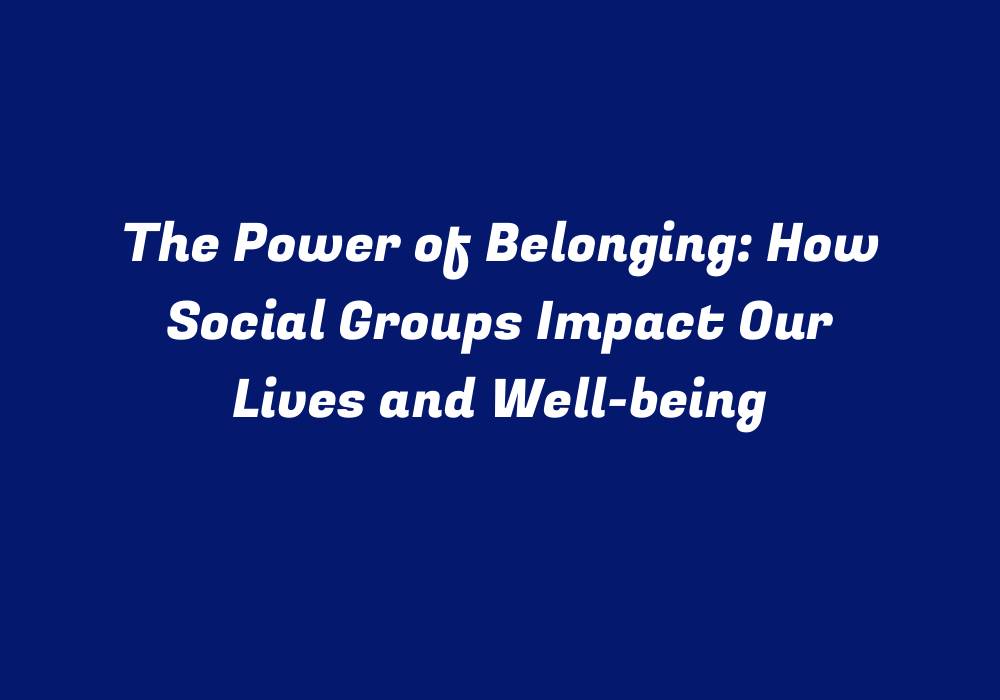Introduction: The Influence of Social Groups on Our Lives and Well-being
In a constantly evolving world, the concept of belonging remains an essential aspect of human existence. Belonging to social groups not only serves as a means for personal fulfillment but also impacts our emotional, physical, and mental well-being in profound ways. This article explores how such groups can shape our lives, fostering growth, happiness, and resilience.
The Role of Social Groups in Our Identity
Social identification is a fundamental aspect of human nature. By belonging to different groups, people are able to forge an understanding of their identities. This can take place within various contexts such as family, friendships, work environments, religious communities, and even online platforms. Identifying with these social groups provides us with the opportunity to develop a sense of belonging that strengthens our overall sense of self.
The Psychological Benefits of Social Groups
Belonging to a social group brings forth a range of psychological benefits, including improved mental health and emotional well-being. Research has demonstrated that individuals who actively participate in groups experience enhanced self-esteem, as they feel valued for their unique contributions. Moreover, these connections foster resilience during challenging times, acting as a support network that can help alleviate feelings of loneliness or isolation.
Social Groups and Personal Growth
As we navigate through life’s transitions and face new experiences, our social groups play an important role in fostering personal growth. Through exposure to diverse perspectives and values, these connections enable us to broaden our horizons and develop a deeper understanding of ourselves and the world around us. This process ultimately leads to an enriched sense of individual development, ensuring that we continue growing both personally and professionally.
The Impact on Physical Health
Numerous studies have demonstrated the positive effects of belonging to social groups on our physical health. These connections can enhance our overall well-being by providing a sense of purpose and motivation, encouraging us to adopt healthy lifestyle habits such as regular exercise or proper dietary choices. Moreover, these relationships often involve sharing information about available resources and support systems that promote better health outcomes.
Social Groups and Stress Management
Stress is an inevitable part of life. However, belonging to supportive social groups can help us cope with stress more effectively. These connections provide a platform for sharing our experiences, offering advice, or simply providing a listening ear when needed. By having someone to rely on during challenging times, we are able to manage our emotions and maintain better mental health overall.
The Power of Empowerment in Social Groups
Beyond personal benefits, social groups often promote collective empowerment by addressing issues that affect their members directly. For instance, these connections can work together to advocate for better living conditions, fair representation in decision-making processes, and increased accessibility to resources that improve the quality of life for everyone involved. This collective empowerment fosters a sense of unity within the group, strengthening bonds and contributing to overall well-being.
Conclusion: Embracing the Power of Belonging
In conclusion, belonging to social groups is an essential part of human existence that goes beyond mere friendship or camaraderie. It impacts our lives on multiple levels – from personal identity and emotional well-being to physical health and collective empowerment. By embracing the power of these connections, we can cultivate a sense of belonging that positively shapes our journey through life and supports our growth as individuals.
